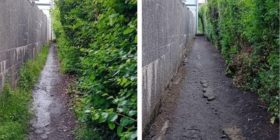Baby Sleeping Patterns: New Animated Film To Help Mums

A new animated research video intended to help new mothers to find out more about baby sleep patterns and feeding has been released by Swansea University.
The film, which is released during Safer Sleep Week , summarises research by academics at Swansea University’s College of Human and Health Sciences that challenges the idea that babies should be sleeping through the night and disproves the myth that stopping breastfeeding or giving more solid food to babies helps them to sleep longer at night.
Dr Amy Brown, programme director for the MSc Child Public Health course said: “The film helps to highlight the key research findings which firstly contest the idea that babies should be sleeping through the night once they are past a few weeks old and secondly that what you feed babies will help their sleep. There is a common belief that formula milk or giving more solid foods will help your baby sleep better and this study shows this isn’t true. We did find that mothers who were breastfeeding fed their baby more at night but this could be because breastfeeding is a simple way to get your baby back to sleep quickly! The babies who were formula fed still woke up, they just weren’t fed.”
The study asked 715 mothers with a baby aged 6 – 12 months how often their baby usually woke in the night and whether they fed their baby when it woke.
The research found:-
- 78% of babies at this age still regularly woke at least once in the night
- 61% of babies had at least one milk feed during the night.
- there was no difference in the number of times babies woke up dependent on whether they were breast or formula fed, how many feeds they had in the day or how many solid meals they ate.
Dr Brown said: “We hope that this film and our findings are of comfort to new mothers who have a baby who is still waking in the night, in showing them that many other babies are waking too. We hope that it will also give new mothers confidence to continue breastfeeding and introducing solids gradually as they know stopping will not magically make their baby sleep.”
Spotted something? Got a story? Email News@News.Wales










